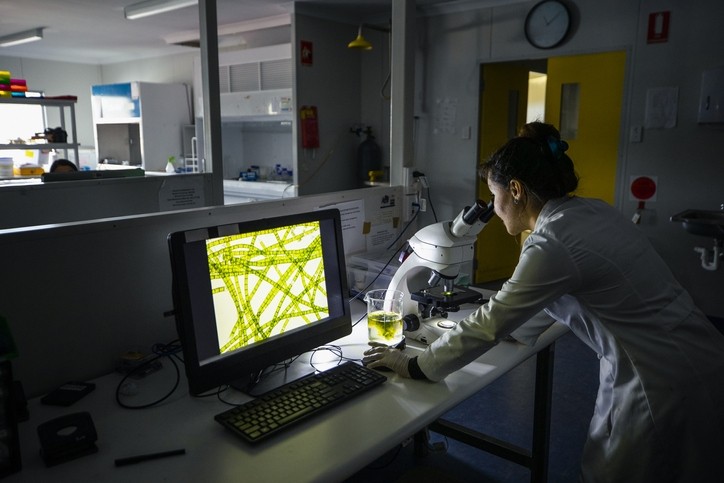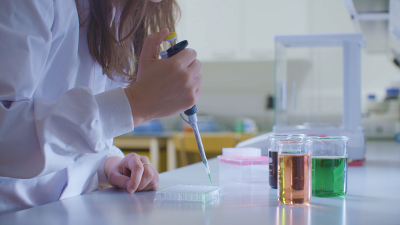Algae discovery could be used to enhance the productivity of crops

Looking at microalgae found over large parts of the ocean, an international team of researchers led by the University of East Anglia UEA’s Prof Thomas Mock, discovered the algae have found a way to cope with nutrient starvation, which is predicted to increase due to warming waters. This is good news for the food chain – marine microalgae are the base of the largest food web on Earth including krill, fish, penguins, and whales – as well as pulling CO2 from the atmosphere and producing oxygen.
“For algae to produce food and to remove CO2 from the atmosphere, they need sunlight,” explained Prof Mock.
“The dilemma, though, is that the cellular machinery for using sunlight requires a lot of iron. However, 35 per cent of the surface of the ocean does not have enough iron to support the growth of algae.
“In these areas algal productivity should be much more reduced, similar to crops on land that lack iron- and nitrogen-rich fertiliser, meaning crops will not grow that well.
“Global warming is increasing drought on land and the same thing happens in the ocean: the warmer the surface water gets, the lower are the nutrients in these surface water layers because of reduced mixing that usually adds nutrients from the deeper ocean. Hence, algae are supposed to starve and therefore produce less food and take up less CO2 from the atmosphere.”
The research team discovered that algae have found a way to cope with nutrient starvation by evolving an additional cellular machinery that allows them to use sunlight for growth without the need for iron.
Instead of being reliant on photosynthetic proteins that require iron (to generate ATP, the energy currency of all cells), algae use a light-responsive membrane protein that is related to one in human eyes: rhodopsins. These proteins do not require iron and one specific group of them pumps protons through membranes, which enables synthesis of ATP, which is a main function of photosynthesis in all photosynthetic organisms.
Prof Mock said: “This simple cellular machinery is the reason why they still can thrive in these nutrient-poor surface oceans, and it is therefore also likely they will be able to cope with global warming as they are preconditioned.”
As well as helping to counteract the negative effects of climate change, the discovery into how algae compensate for nutrient deficiencies is potentially good news for the productivity of crops too, which also require iron for growth.
‘Algae appear uniquely resilient’
“All crops have chloroplasts and our protein is targeted to chloroplasts in order to boost growth by additional ATP,” Prof Mock told FoodNavigator. “However, the latter has not been confirmed yet experimentally, but we see enhanced growth of the algae and higher yield especially under harsh (e.g., nutrient limitation) growth conditions if these proton pumps are present.
“However, the proton pump we have discovered in a diatom is particularly good at pumping protons and therefore likely will significant contribute to boosting growth as we show in the paper.”
Asked if the study tells us anything new about algae’s potential as a food ingredient, he replied: “Plants do not naturally have these plastid-targeted proton pumps, at least to the best of my knowledge. However, some algae do, and they seem to be very important for coping with unfavourable conditions. Thus, algae appear to be more resilient through a lot of ‘unique’ biology of which the proton pumping rhodopsins belong to. This makes them a good choice when it comes to the synthesis of high-value products but also just for biomass production and carbon dioxide sequestration (e.g., liquid trees).”
Reference
‘Plastid-localized xanthorhodopsin increases diatom biomass and ecosystem productivity in iron-limited surface ocean’ is published on 16 October 2023 in Nature Microbiology.
https://doi.org/10.1038/s41564-023-01498-5





















